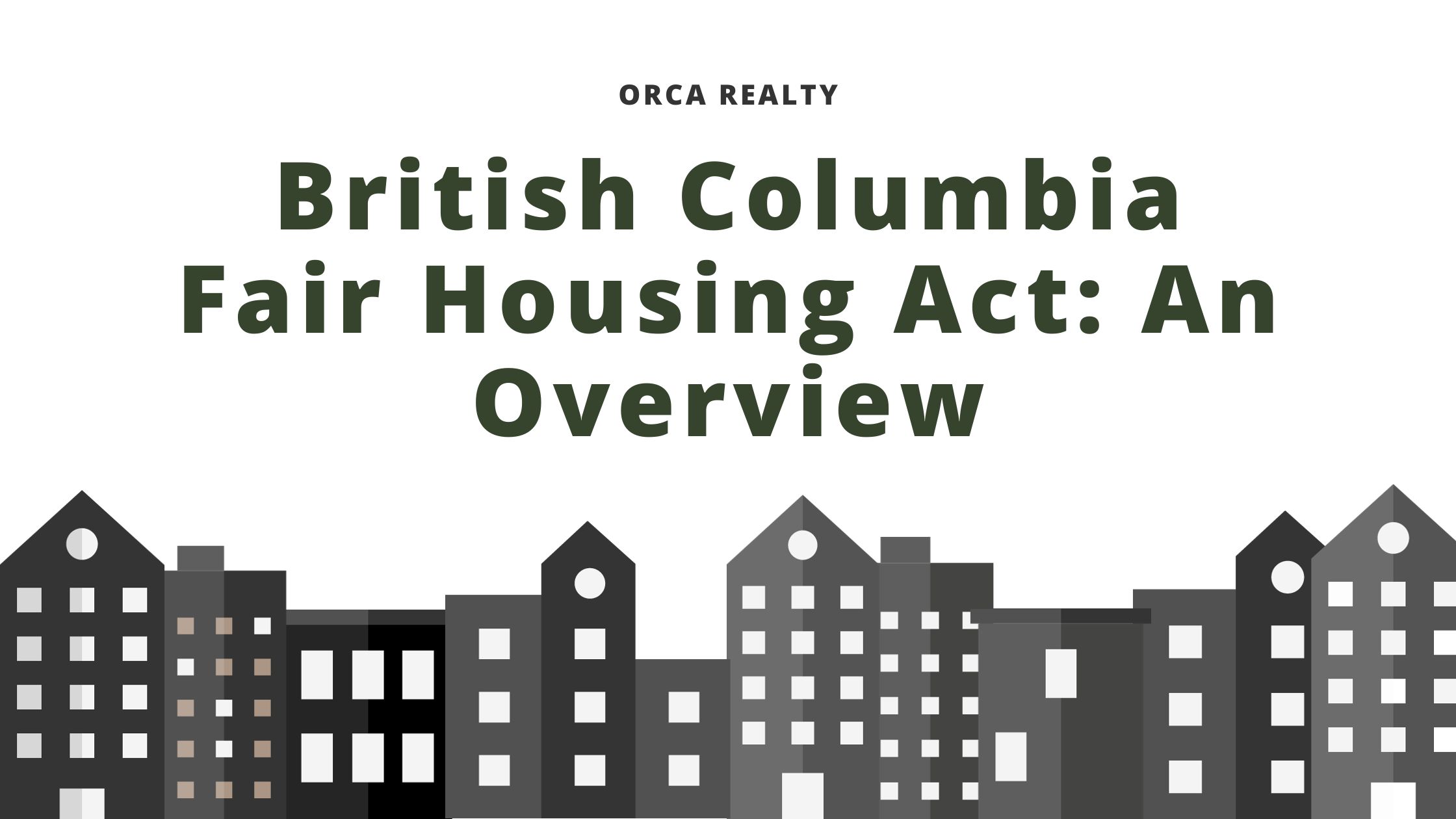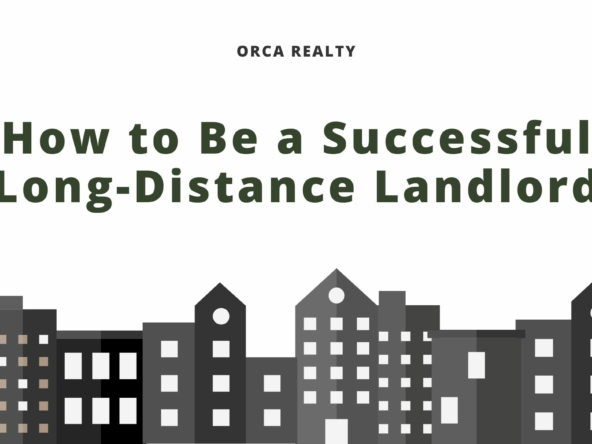Are you renting out a property to provide housing in British Columbia? If you are, then it’s important to familiarize yourself with the British Columbia Fair Housing Act.
The act makes it illegal for housing providers to discriminate against their tenants based on certain classes. Including, race, ancestry, indigenous identity, religion, and place of origin. As a landlord, failure to abide by this crucial law can result in serious legal consequences for you.
In this article, we’ll cover all the important basics that you should know to help protect you and your investment in the real estate market.
What Is the Fair Housing Act in British Columbia?
British Columbia doesn’t specifically have a “Fair Housing Act.” With that said, the concept of fair housing laws falls under the umbrella of the Human Rights Code. These fair housing laws protect tenants from landlord discrimination in the following areas.
- Race
- Color
- Gender identity
- Sex
- Religion
- Political belief
- Criminal record
- Place of origin
- Ancestry
- Age
- Disability
- Familial status
- Gender identity
- Sexual orientation
Discriminating against a tenant on any of these classes is illegal on many fronts when providing housing. Including, during tenant selection, lease termination, determining rent, and other aspects of the landlord-tenant relationship.
When Was the Fair Housing Act Implemented in British Columbia?
As already mentioned, there is no piece of legislation in British Columbia that is titled “Fair Housing Act.” With that in mind, the concept of “fair housing” is addressed through a combination of laws, including federal human rights law and provincial laws.

The provincial legislation covers two main pieces of legislation: the Human Rights Code and the Residential Tenancy Act. The Human Rights Code protects tenants against discrimination based on race, religion, ancestry, sex, gender identity, place of origin, color, sexual orientation, and disability.
As for the Residential Tenancy Act, it helps set out the rights and responsibilities of each party to the lease. It educates landlords on the responsibilities they have regarding the fair housing laws, which include treating tenants fairly, equally, and respectfully.
It also helps educate tenants on their anti-discrimination rights while finding housing. Including, how to spot it and how to seek help.
The other important piece of legislation that addresses the concept of fair housing in British Columbia is the Federal Human Rights law. This housing legislation also prohibits discrimination based on the same grounds as the BC Human Rights Code.
It specifically applies to federally regulated housing providers, for example, those on First Nations reserves or military bases.
What Are Some Examples of Discriminatory Practices That Are Illegal for Landlords in British Columbia?
When providing housing, you’re allowed to screen tenants based on their rental history and ability to pay rent with their income.
However, the following are some examples of discriminatory practices that you must avoid when renting out your BC, Canada property.
- Refusing to rent out your vacant property to a qualified tenant because of a protected class.
- Setting different rent amounts for the property depending on the ethnic background religious beliefs of the applicant.
- Asking discriminatory questions about a tenant’s disabilities during the tenant screening process.
- Advertising your vacant rental property using a language that excludes renters of certain protected classes.
- Denying a rental application from a tenant without having a valid reason, such as their rental history, to do so.
- Treating tenants with different classes differently based on their characteristics.
- Harassing a tenant because of their race, color, age, or any other protected class.
- Threatening a tenant with eviction solely based on their protected characteristic.
- Charging tenants with certain characteristics higher fees and security deposits.

Are There Any Exemptions to the Fair Housing Act in British Columbia?
It is important to note that there are no true exemptions to the National Housing Act in British Columbia, Canada. That being said, there are some limited instances where certain provisions of the act may not apply. For example:
- Owner-occupied dwellings. The provisions of the act will not apply in situations where the landlord rents out a section of their home. Typically, this occurs in situations like shared housing accommodations or bed and breakfasts.
- Religious facilities. In certain circumstances, religious organizations may be able to limit housing only to members professing the religious faith and not others in the general population.
Other groups that may be exempt from the fair housing laws in British Columbia, Canada include live-in caregivers, roommates, and designated group housing.
What Can Landlords in British Columbia Do to Protect Themselves Against Fair Housing Complaints?
As a landlord in British Columbia, there are several things you could do to protect yourself against potential fair housing or discrimination complaints. Below are some of the proactive measures you could take.
- Familiarize yourself with the anti-discrimination law. Specifically, before renting out your property yourself, know the basics of the BC Human Rights Code. Understand the specific provisions of the code and the various protected characteristics tenants cannot be discriminated against.
- Have clear and fair rental policies on things like rent increases, application procedures, tenant selection, and eviction procedures. You cannot favour some tenants over other tenants. This will ensure there is fairness and consistency in everything you do as a landlord.

- Have standardized criteria for tenant selection. Avoid subjective factors and personal preferences when choosing renters. Instead, base your tenant selection decisions on objective criteria, such as credit checks, income verification, and rental background.
- Treat all prospective, current, and past tenants fairly, equally, and respectfully, regardless of their protected classes.
- Ask the right questions when screening tenants. Generally, avoid all questions that touch on a tenant’s protected class. For instance, avoid asking the tenant how many children they have, which church they go to, and whether they are disabled, among others.
- Have clear repair and maintenance policies. Respond to issues, especially health and safety concerns, from all tenants within a certain timeframe to ensure equal treatment of all tenants.
Bottom Line
The first step to a successful landlord journey in British Columbia begins with familiarizing yourself with your legal obligations in the housing sector. This will help you know what you can and cannot do when providing housing and living conditions with a rental property.
If you have a question or need expert help in the management of your British Columbia rental property, then look no further than Orca Realty. Get in touch today to learn more!
Disclaimer: Please note that the information provided in this blog is intended for general guidance and should not be considered as a replacement for professional legal advice. It is important to be aware that laws pertaining to property management may change, rendering this information outdated by the time you read it.




